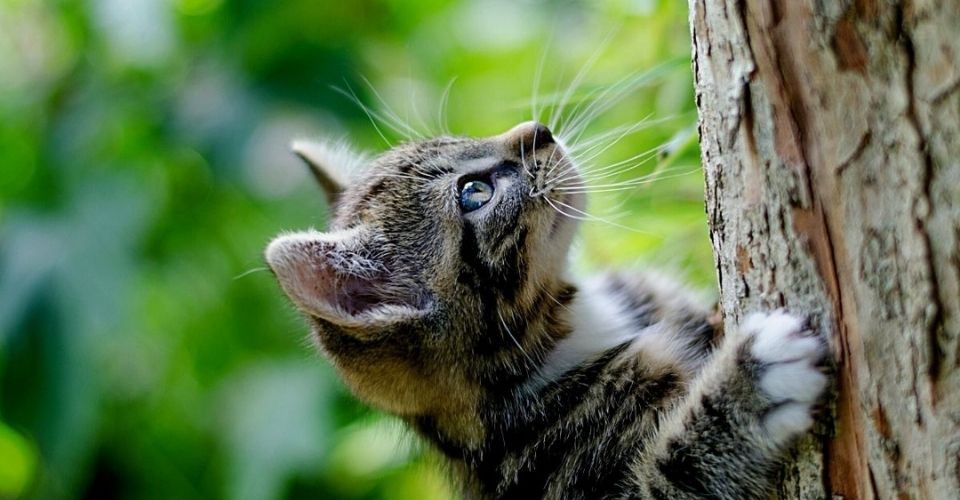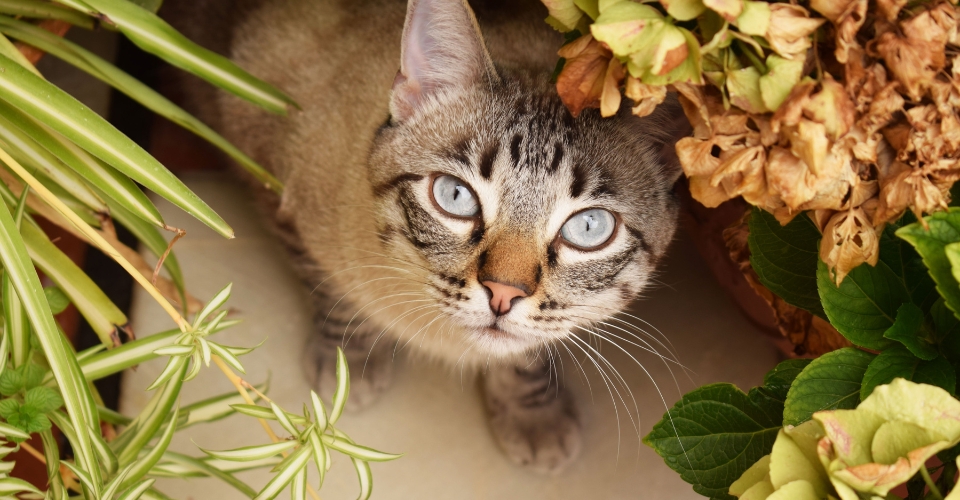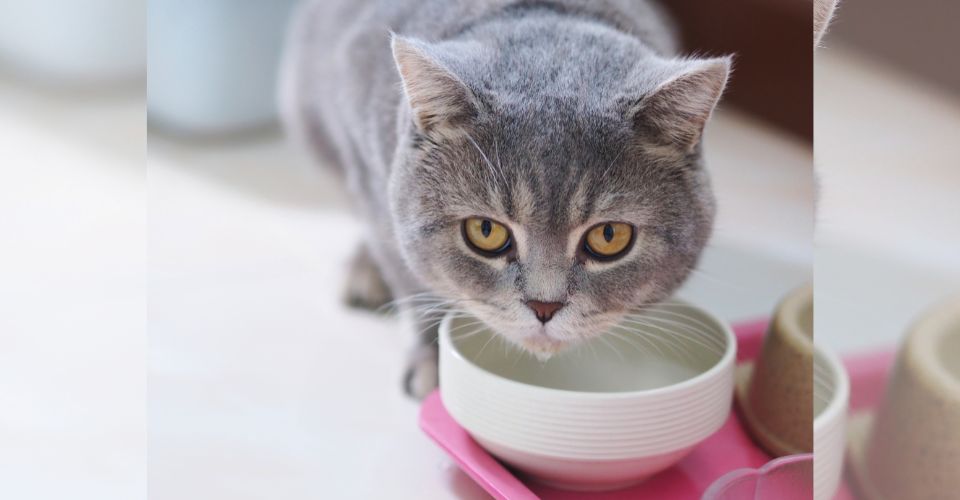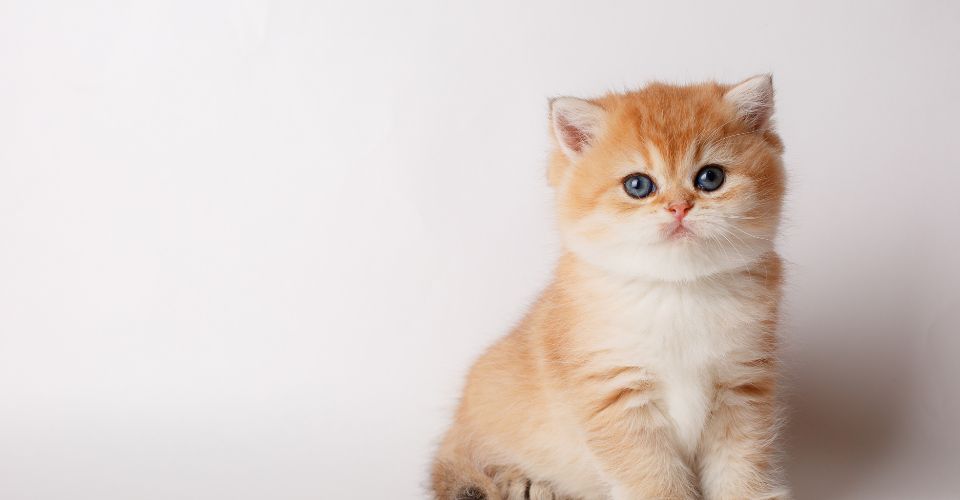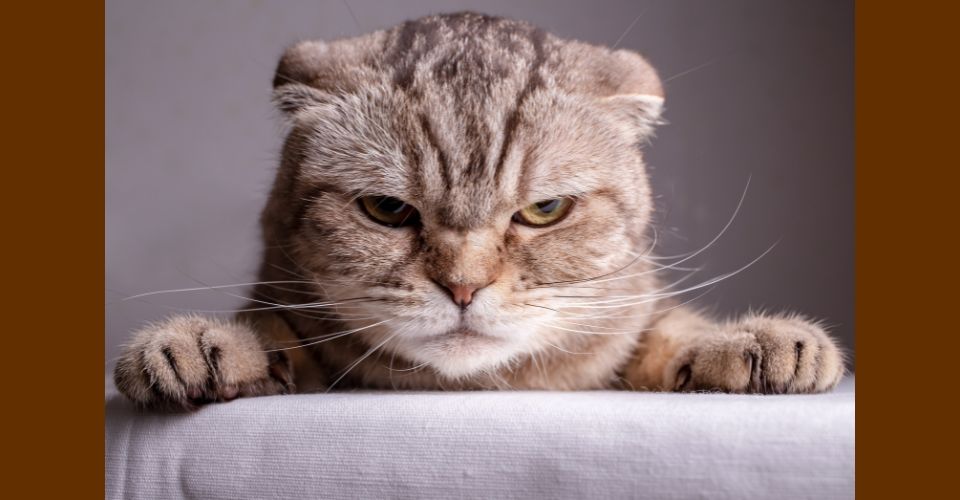Is cinnamon bad for cats?
No, but it can be dangerous for cats at certain levels.
Native to Sri Lanka, India, Brazil, and Indonesia, Cinnamon is one of the most popular spices. It comes from the inner barks of many trees belonging to the Lauraceae family. It is widely used for flavoring in numerous cuisines, ranging from sweet desserts to savory dishes and even drinks. It is due to its versatile usage, many folks keep cinnamon around in their kitchens. Perhaps, you have it in your kitchen as well.
If not in the kitchen, you may have it growing in your garden. Yes, cinnamon trees are also used as ornamental trees in home gardens.
Cinnamon and Cats
Is it dinner o’clock for your cat? Are you cooking a savory chicken for your feline friend? Are you tempted to sprinkle some cinnamon on it? Or have you accidentally sprinkled some cinnamon powder on your cat’s meal, and now you are not sure if you should give it to your cat or not? Is your cat hungry and constantly meowing for you to put the cooked chicken in her bowl?
We can feel you. Many cat owners have been in tough situations like this. Like the fabled dilemma of Shakespeare, “to be or not to be,” they too grapple with their own predicament, “to feed or not.” With the food ready and the cat’s patience wearing thin, you must be tempted to just give it to her.
But please don’t! It’s not that a pinch of cinnamon is dangerous for cats, but it is not a good practice to feed your cats anything other than cat food without knowing about their suitability for cats.
You can just give your vet a call to confirm if cinnamon is safe for your cat.
As a responsible cat owner, you must be doing your own research about which human food is safe for cats and which is not. But in addition to internet surfing, you should always run it by your vet.
Can Cats Have Cinnamon?
Cinnamon is classified as non-toxic to cats, dogs, and horses by the American Society for the Prevention of Cruelty to Animals (ASPCA). Well, this does not mean that you are good to throw a cinnamon stick to your cat to munch on. Cinnamon is not only tolerated by cats, but it may even have several benefits for them, but only if it is being fed in smaller amounts.
Is Cinnamon Good for cats?
While there is not much research specifically focused on the benefits of cinnamon for cats. But from the available data on its health benefits for humans and nutritional composition, it can be extrapolated that our four-legged friends also reap its benefits, given that they consume it in smaller amounts.
To begin with, cinnamon is rich in antioxidants, which can have an impressive effect on your as well your cat’s health. Antioxidants found in cinnamon support cats in their fight against cancerous cells. Antioxidants also protect our feline friends against free radical damages, responsible for causing series of diseases, ranging from heart diseases to mental illnesses.
Cinnamon is also known for creating resistance to diabetes in cats, by enhancing their sensitivity towards insulin. With boosted sensitivity to insulin, your diabetic cat will be able to maintain healthier blood sugar levels. By discussing it with your vet, you can start adding a pinch of cinnamon to your overweight cat’s diet as they are more prone to developing insulin resistance.
In addition to offering protection against free radical damage and diabetes resistance, cinnamon is also known to help cats with blood pressure levels and deal with their cholesterol levels.
Does Cinnamon Keep Cats Away?
Are you tired of your cat sneaking out in your garden and eating grass? Have you tried everything, but you are failing to keep your cat out of the garden? Are you now thinking of growing a cinnamon tree in your garden?
Most cats do not like strong cinnamon’s smell and therefore, many cat parents grow cinnamon trees in their gardens, to keep their felines away. Actually, cats have a powerful sense of smell. Where a human nose contains only 5 million olfactory receptors, cats have around 45 to 80 million receptors. This strong sense of smell in cats makes the strong aroma of cinnamon quite irritating for them. But while some cats may be deterred by the strong smell of cinnamon, others may find it stimulating.
Most vets do not recommend growing a cinnamon tree in your garden. With a tree in the garden, your cat is always exposed to cinnamon, thereby risking excessive ingestion of cinnamon which could be harmful. A cat cannot only ingest the bark of the cinnamon tree in your garden but can also sniff it and rub her skin against it, which could cause cinnamon toxicity in your cat.
Can Kittens Eat Cinnamon?
NO! Kittens cannot eat cinnamon.
You should keep your cinnamon oil, powder, and sticks away from your baby kitten. If you have a cinnamon tree in your lawn, you should do something about it or make sure that your kitten has no access to the lawn. Kittens have a very weak stomach, kidneys, and liver. Therefore, more than a pinch of cinnamon could lead to cinnamon toxicity in your baby kitten. On top of that, kittens also have extra sensitive skin compared to adult cats, so they are more prone to developing allergic reactions to cinnamon.
Let alone cinnamon, you should not be feeding any human food to your kitten, even if it is not harmful to them. The initial months of a kitten’s life is a whirlwind of developmental changes, and for kittens to have proper growth, it is crucial that their special nutritional needs are being met. These nutritional needs can only be met by conventional kitten food.
Is Cinnamon Bad for Cats?
As discussed earlier, cinnamon is not classified as toxic to cats by the ASPCA, but one should keep in mind that at certain level cinnamon becomes deadly for cats. According to Pet Poison Helpline, only the ingestion of large amounts of cinnamon (more than one teaspoon of powdered cinnamon) causes problems in our pets. Similarly, only a small amount of cinnamon oil can be a cause of concern.
Consuming cinnamon in excessive amounts is not only bad for cats but is also dangerous for humans. Have you ever participated in or seen a cinnamon challenge, where participants have to consume one teaspoon of cinnamon powder in under 60 seconds? If so, you will have noticed that participants often experience difficulty breathing, bloody nose, and lightheadedness.
Is Cinnamon Oil Bad for Cats?
Yes, it is bad. Both ingestion and skin exposure to cinnamon oil is poisonous to cats. According to VCA hospital, “only a couple of licks or a small amount on the skin could be harmful to a cat.” This is because cinnamon essential oil is very concentrated. Actually, cats do not have liver enzymes required to digest different cinnamon compounds, such as coumarin. Exposure to a highly concentrated form of cinnamon for an even shorter period can result in the accumulation of these cinnamon compounds, which can lead to kidney damage or liver failure.
Please note that you expose your cat to cinnamon essential oil by diffusing it in your home and by petting your cats after applying cinnamon oil to your hands.
Cinnamon Toxicity and Its Signs
If your cat has ingested cinnamon powder or consumed cinnamon bark in excess, she might exhibit the following symptoms.
- Diarrhea
- Vomiting
- Difficulty breathing
- Liver diseases
- Lowered blood sugar levels
On inhaling an excessive amount of powdered cinnamon or vapors of cinnamon oil, your cat may exhibit the following signs.
- Coughing
- Sneezing
- Bronchospasm
- Difficulty breathing, etc.
If your cat’s skin has come in contact with cinnamon, you may get to see the symptoms of sickness mentioned below.
- Redness
- Rashes
- Itching
- Excessive scratching and pawing, etc.
What Can You Do?
If your cat has consumed cinnamon in excess in any form, you must immediately rush to the vet. If your cat has consumed only a small amount of cinnamon but is still showing the above-mentioned signs your cat is sick, you should get the vet to examine her thoroughly.
Depending on the severity of the matter, the vet might have to hospitalize your fluff ball. If you took your cat immediately to the vet without any delay, you should be hopeful, as there are several treatment plans to ensure the speedy recovery of your cat from cinnamon toxicity.
Summing up, is cinnamon bad for cats? No, it is not inherently bad for cats except when it is in oil form. Similarly, keep it away from baby kittens as their nutritional requirements are different than adult cats.
Find out what other foods cats can eat or not eat:

